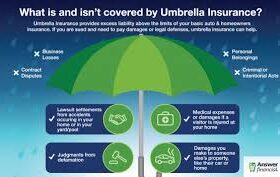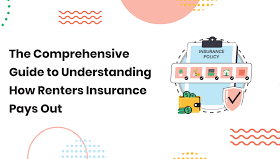We are sure not everyone know what earthquake insurance is all about and that is why we have decided to bring it to you.
Did you know that earthquakes happen more often in the U.S. than you might realize? To make sure your home is financially protected from these quakes, it could be a good idea to add earthquake coverage to your insurance policy or buy a separate earthquake insurance policy. The insurance experts at Bankrate explain when you might need earthquake insurance and how to get it.
What does earthquake insurance cover?
Earthquake insurance is a special type of policy that protects your home if it gets damaged during an earthquake. It covers things like repairs to your house and any other buildings on your property, such as a garage or pool. You might also get coverage for your belongings, but it depends on the policy you choose.
It’s important to know that your regular homeowners insurance won’t cover earthquake damage. It might help with fire damage caused by an earthquake, but not the damage from the quake itself. So, if you want that extra protection, you’ll need to add an endorsement to your policy or get a separate earthquake insurance policy.
If you live in a place where earthquakes are more common, like California, you might need a separate earthquake policy altogether.
With earthquake insurance, you’re usually covered for things like emergency repairs to stop further damage, any required upgrades to meet building codes, and stabilizing your land. It also typically includes coverage for extra living expenses if you have to move out while your home is being fixed.
- AAA Auto Insurance Review 2024
- Scholarship To Croatia Without IELTS
- Fully Funded Scholarship To Netherlands
- Cadiff University PhD Scholarship
- University of Qatar Scholarship
Your regular homeowners insurance should cover fire damage caused by earthquakes because fire is a named peril in most policies. But earthquake insurance won’t usually cover damage to your land or your car, unless you have comprehensive car insurance for your vehicle.
Do You Need Earthquake Insurance
How Common is Earthquake Insurance
The table below lists earthquakes with a magnitude of 5.0 or higher recorded around the world from 2016 to 2021. Although the total number of earthquakes varies, there were a lot more earthquakes in 2021 compared to previous years.
| Year | Magnitude 5-5.9 | Magnitude 6-6.9 | Magnitude 7-7.9 | Magnitude 8-8.9 | Total |
|---|---|---|---|---|---|
| 2016 | 1,550 | 130 | 16 | 1,696 | |
| 2017 | 1,455 | 104 | 6 | 1 | 1,566 |
| 2018 | 1,674 | 117 | 16 | 1 | 1,808 |
| 2019 | 1,492 | 135 | 9 | 1 | 1,637 |
| 2020 | 1,312 | 112 | 9 | 1,433 | |
| 2021 | 2,047 | 140 | 16 | 3 | 2,206 |
This table shows the number of earthquakes with magnitudes of 5.0 or greater recorded worldwide from 2016 to 2021. As you can see, there were more earthquakes in 2021 compared to previous years, especially in the magnitude 5-5.9 range. This suggests a potential increase in earthquake activity.
How Much Is Earthquake Insurance
The price of earthquake insurance can change a lot based on where you live and other things. Just like with other types of insurance, the cost of earthquake insurance usually goes up if your home is more likely to get hit by an earthquake. So, people in places with a lower risk of earthquakes usually pay less than those in high-risk areas.
If you live in California, where earthquakes happen a lot, there’s something called the California Earthquake Authority that can help you figure out how much earthquake insurance will cost you. They have tools, like an earthquake premium calculator, to help you out.
Factors Affecting The Cost of Earthquake Insurance
The price you pay for earthquake insurance is mainly figured out by your insurance company. They look at specific details about your home and where you live to figure out how likely it is to get damaged in an earthquake. Here are some things they consider, according to the NAIC:
- How close your home is to an area where earthquakes are common
- How old your home is
What your home is made of (for example, if it’s made of brick, it might cost more to insure) - How much you choose for your deductible
- How much it would cost to rebuild your home
- Any extra coverage you want, like for other buildings on your property
Just like with your regular insurance, your coverage should be enough to rebuild your home completely, not just what it’s worth if you were to sell it.
The level of earthquake risk where you live also affects how much you’ll pay. For example, someone living in a place like New Madrid County, Missouri, where there’s a big fault line, might pay a lot more for earthquake insurance than someone in a place like Jackson County, Missouri, where there’s less risk of earthquakes.
Your deductible is another big factor in how much you’ll pay. With regular insurance, you usually have a set amount for your deductible, like $250 or more. But with earthquake insurance, your deductible is often a percentage of what it would cost to rebuild your home, usually between 10% and 15%. So, if your home is insured for $300,000, your deductible could be as high as $45,000.
If your home doesn’t get damaged enough to need a full rebuild, you might have to pay for some of the repairs yourself, even if you have insurance. You should also think about getting coverage for your belongings and any other buildings on your property.
Conclusion
This is all you should know for now about this insurance and if you have any question kindly reach out to us here through the comment section.





